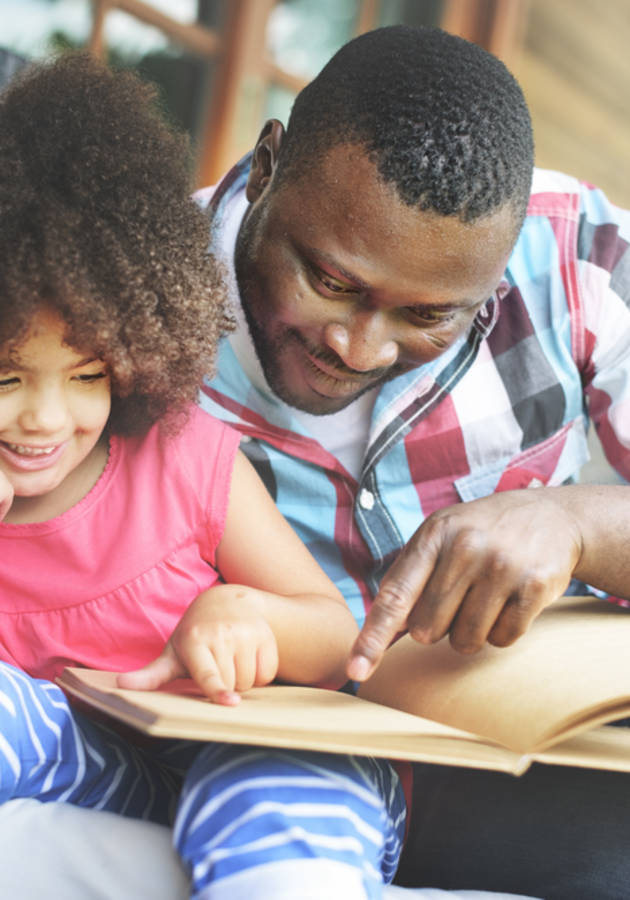They say that you can never be too protective of your children, but studies prove otherwise: the more caring parents are, the less prepared kids seem to be for the real world once they become adults. In other words, even though it may instinctively feel otherwise, in parenting, too much of a good thing might actually be a bad thing. Sadly, it is only a fine margin that separates good parenting from overparenting, and staying on the safe side of it is more of an art than a science.
Precisely because of this – and especially in view of the many failings of the ever-childish Generations Y and Z in these puzzlingly intolerable times of feigned victimhood – “How to Raise an Adult” by former Stanford dean Julie Lythcott-Haims seems to be the right book at the right time. It is a book, in the words of the author, “about parents who are overinvolved in the lives of their kids. It looks at the love and fear behind our overinvolvement. It looks at the harm we cause when we do too much. And it looks at how we might achieve better long-term ends – and help our kids achieve even greater success – by parenting differently.”
Our summary has all the highlights.
The four parenting shifts and the birth of helicopter parenting
It wasn’t that long ago that American parents were rather uninvolved in childhood, particularly in comparison with modern parents. You don’t often hear the latter saying things like, “Go out and play and be home for dinner.”. And yet, for millions of people on this side of the Atlantic, their entire childhoods can be wrapped inside that single sentence. And bear in mind that we’re talking about the pre-cellphone, pre-GPS age,when parents didn’t even own a tool to check where their children were or precisely what they were doing.
And then, in 1981, six-year-old Adam Walsh was abducted and murdered by serial killer Ottis Toole. The tragic story was turned into a 1983 made-for-TV movie titled “Adam,” after which – according to Julie Lythcott-Haims – parenting took a completely wrong turn. Seen by a near record-setting 38 million people, the fear-inducing film inspired a nationwide parenting paradigm shift: suddenly, parents couldn’t get through their days without knowing where their children were at all times, which resulted in them being too afraid to allow their kids to run freely and carelessly around the neighborhood.
That same year (1983), the Report by the National Commission on Excellence in Education, A Nation at Risk, revealed that American kids weren’t competing well against their peers globally. This led to unprecedented veneration of outdated educational practices such as tests and rote memorization, and soon enough, both American kids and parents “began struggling under the weight of more homework and began doing whatever it takes to survive school.”
A third shift occurred with the onset of the self-esteem movement, a uniquely American phenomenon. Gaining popularity in the 1980s, the movement continues to advocate, to this very day, the exceptionality of every child, pointing out that parents should value their children’s personhoods rather than their results, and coming up with that senseless and harmful adage that “everyone's a winner.”
The final, fourth shift happened around this time as well, with the creation of the playdate. Believe it or not, before 1984, parents didn’t play with their children because their schedule said so, and children’s games were rather unstructured, spontaneous and free.
It was these four parenting shifts that led to a new age of parenting, and inspired child development researchers Foster Cline and Jim Fay to coin the term “helicopter parenting” to describe this phenomenon in 1990.
As vividly illustrated by the name, a helicopter parent is one “who hovers over a child in a way that runs counter to the parent’s responsibility to raise a child to independence.” Since the four shifts that led to the advent of helicopter parenting all happened in the middle of the 1980s, they mainly affected the worldviews of the very late baby boomers. They became the first “helicopter parents” in American history. Their children: the Millennials.
Allow your kids to grow up, or: why you must stop overparenting
Unlike proper parenting – which is all about preparing your children for life – helicopter parenting (or overparenting) is essentially about protecting them from it.
True, life can be a discouraging experience from time to time, and, even truer, there are heartbreaks and disappointments around every corner. However, when parents decide to shield their sons and daughters from the hardships of life, they are basically building a plastic “bubble” around their childhoods – a sort of surrogate-womb – and are preventing them from ever becoming adults. As Lythcott-Haims demonstrates in the second part of her book, the negative effects of helicopter parenting are numerous and sometimes too difficult to correct past a certain age:
- Basic life skills. Because of overparenting, modern students are not just financially dependent on their parents, but also untrained in some of the most basic life skills: they don’t know how to cook by themselves, they don’t know how to wash their clothes, and they don’t even know (a real-world example) how to unpack their boxes after moving out. “Kids don’t acquire life skills by magic at the stroke of midnight on their eighteenth birthday,” writes Lythcot-Haims, tongue-in-cheek. “Childhood is meant to be the training ground. Parents can assist … by getting out of the way and letting kids figure things out for themselves.”
- Psychological harm. Overparenting often starts with something very innocuous: protecting your child from your own struggles. It might seem like a good idea to be an inspiring model for them and focus solely on your success stories, but not telling your kids that you have failed your driver’s exam several times or that you upset your parents when you chose a different college than the one they had in mind eventually results in an atmosphere of unrealistic expectations. Unfortunately, when your children inevitably come across some similar problems in their lives, their false belief that you have never experienced such issues will make the burden twice as heavy for them. Your kid will not only think that they have not lived up to your expectations – but also, just like you, they will prefer to suffer alone.
- Study drug addicts. A 2013 survey by the American College Health Association of nearly one hundred thousand college students from 153 different campuses revealed some devastating facts: 4 in 5 American students feel psychologically exhausted, 2 in 3 are very sad and lonely, 1 in 2 feel hopeless, and about 1 in 10 have seriously considered suicide at one point in their lives. The reason: the unbearable race that is modern education, and the insistence of helicopter parents that their children excel in everything. Because of this, most parents – unfortunately – would rather see their kids depressed at Yale than happy at Arizona University. The result: about 15% of college students are medicated for depression and at least as many have misused or abused prescription drugs such as Ritalin or Adderall at least once in their lifetime – not to mention some other “good-grade pills.”
- Job prospects. Overparenting has also resulted in the creation of a whole generation of unprepared and incompetent employees. Employers expect maturity in their workers, and children who have been “overparented” are simply not independent enough to take risks by themselves or persevere past the inevitable first or second failure. Being too protective of your children, simply put, hurts their job prospects and, in the long run, does a disservice to the future of the entire nation.
The four types of parenting – and why only one of them makes sense
In 1967, University of California–Berkeley developmental psychologist Diana Baumrind articulated, in an oft-quoted paper, three distinct types of parenting: permissive, authoritarian, and authoritative. About two decades later, in the midst of the parenting shifts, psychologists Eleanor Maccoby and John Martin modified her classification a bit and added a fourth type: neglectful.
These four types of parenting have been considered standard in the field ever since then, and can tell us a lot about what modern parents are doing wrong, and even more about what future parents should do to not repeat their mistakes:
- Authoritarian: demanding and unresponsive. Authoritative parents are, in essence, the once-prevalent but now mostly outdated “because I said so” type of parents. They are strict and expect obedience and respect, which is why they often punish their children for failing to live up to their expectations. However, they never explain the reasoning for their actions. As a result, the children of authoritarian parents “have a lot of responsibility in the home and few freedoms outside of it.” Today this style of parenting is widespread only in poor and working-class families.
- Permissive: undemanding and responsive. Permissive parents generally tend to be more educated and wealthier than other parents. They attend to almost every need of their children and rarely say “no” to them. Reluctant to establish any rules or expectations, they barely ever discipline their kids, despite being almost always around them. Permissive parents don’t want respect from their children, but love. They’d rather be their children’s friends than mothers or fathers.
- Neglectful: undemanding and unresponsive. At best, neglectful parents are “hands-off” parents; at worst, they are criminally negligent. Utterly uninvolved in their child’s school and home life, these parents are not only emotionally distant, but also frequently physically absent. Oftentimes mentally ill (and undiagnosed), neglectful parents are usually poor or at least “unreliable when it comes to providing the necessities of food, shelter, and clothing.”
- Authoritative: demanding and responsive. Emotionally warm and responsive to their children’s needs, authoritative parents are capable of delineating not only high standards and expectations, but also limits and consequences for transgressing them. Authoritative parents “reason with their kids, engaging in a give-and-take for the sake of learning. They give their children freedom to explore, to fail, and to make their own choices.”
A sheer antithesis to neglectful parents, helicopter parents are usually either authoritarian or permissive. Even when they are both, they don’t get the mixture right, pleasing and praising their kids for all the wrong things, and directing their lives in all the wrong areas. Authoritative parents, on the other hand, sit at “the sweet spot” between “authoritarian” and “permissive” parents, and are capable of balancing warmth with strictness, and direction with freedom the proper way. Needless to say, it is what you should strive to become yourself.
Becoming an authoritative parent
Cultivating an authoritative parenting style is not easy, but – to quote Lythcott-Haims – “by cutting ourselves some slack, widening our definition of success, and focusing on how to unconditionally love our kids and ourselves, we can, in fact, get it right.” The following few are merely some of the numerous strategies outlined in her book to help you get there:
- Give your kids unstructured playtime. Play matters, so embrace it as a developmental necessity. As often as you can, foster imaginative play and always let your kid decide how and what to play. Also, try to create a culture of free outdoor play.
- Teach your kids life skills. in four simple steps: first, do something for them, then do it with them, then watch them do it, and, finally, allow them to do it completely independently from you.
- Teach your kids how to think. Instead of being overprotective and overdirecting, allow your kids to think differently from you by letting them speak up for themselves and encouraging them to put themselves in other people’s shoes (via role-playing games or by acting as the devil’s advocate).
- Prepare your kids for hard work. Do this by asking and expecting their help (don’t overexplain or apologize for it), and giving clear instructions and appropriate thanks and feedback when necessary.
- Let your kids chart their own path. It’s not about you – it’s about your children. If they don’t want to go to Yale, then so be it! Allow them – even if you think it’s a mistake.
- Listen to your kids. Be always available, but never overbearing. Let your kids know that you’re listening. Respond to them in a way they will hear.
Final Notes
Combining state-of-the-art research and Julie Lythcott-Haims’ own experiences as a freshman dean at Stanford, “How to Raise an Adult” justifies its title several times over.
A timely invective against helicopter parenting and a “provocative manifesto” for authoritative parenting, this book might be one of the very few you’ll ever need to raise your child into a disciplined, self-sufficient adult.
Skip it at your own peril.
12min Tip
Become an authoritative parent: be strict, but also give reasons for your strictness while taking into consideration arguments against it – from none other than your children themselves.





























